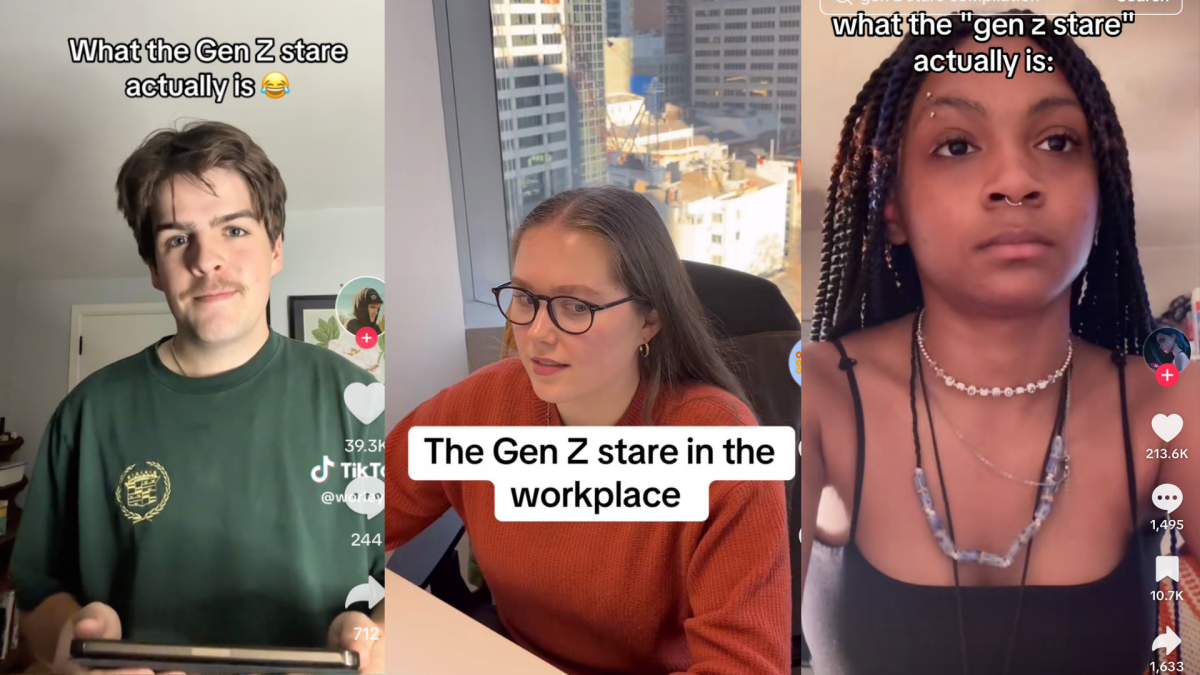The term “gen z stare” appears around social media and No–social media This week. It refers to an empty expression that is presumably common among people aged 13-28 who have been particularly observed retail workers. Gen Z, let’s say, reacts to boiler plates to greetings and a small conversation with an unimaginable stare instead of a smile or nod. Although not a new term –This video to explain phenomena is almost a year old– it’s gone very virus lately. But is this a real change in cultural behavior or an unnecessary age-based online carpet?
Is Gen Z staring even real?
Perhaps? When it comes to some amorphous as people, people say: “Barista looks at me fun when I order starbucks:” There is no way to know if it is a widespread, worrying trait in a large population group or just Meme-Y that older people bag those cursed children. So until the follow -up examination is done, I say this: It is probably a small change in behavioral that is blown in relation to generations of anxiety. Such as Millennials kills a casual meal (and 100 other things), vocal bail– Yen– rainbow partySwitchblades and Bing Crosby’s “too tilted” rhythm “Deep in the heart of Texas. “(To be honest, that shit is fucking hilarious.)
In musical Hi Bye Birdie, Mr. McAfee describes the children as “disobedient, disrespectful OAF” that are impossible to control, and then ask to ask clearly, “Why can’t they be as we would be? Complete in every way?” It was written in 1960, but the 35-year-old could easily have sent it yesterday. One item The unofficial online cultural debate in the Gen Z Series is a shade of criticism of generations that are played 40 years ago. Millennials is between 29 and 44 year olds, the primary age, which is dismantled “I am no longer young” from anxiety, which often leads to jealous people when talking about shit about them. So Gen Z Stare is probably mostly it. But on the other hand, there may be some coals to blast all this smoke.
If the gen z stare is real, what causes it?
If Gen Z really is more susceptible to empty stars, what is behind it? It depends on who you ask. Forbes rounded Some of the opinions of “generational experts”, so select:
-
Suzy Welch, Nyu stern initiative intentionally and flourishingIt triggers that Gen Z actively pushes profit, competition and position.
-
Joe Galvin, Research Director Race“The world’s largest CEO’s coaching and peer-to-peer organization” defines Gen Z staring “growing generational cutting in communications and expectations”.
-
Sujaya Saha, Chairman Cortico-XA consulting company that “helps clients understand meaningful business values through a people-centered approach to business problems,” says staring everywhere because “Gen Z came to work in the era of screens, social distance and remote communication.”
Not violating these experts (I’m sure they are fantastic), but if the coaching organization researcher, the “purpose and thriving” initiative and consultant who is trying to “implement meaningful business values through a human-centered approach to business problems” tried to explain my generation to me, also to the empty support. Staring requires someone to stare atAnd maybe they’re a problem.
Sensitive dance between the Tuijos and the Tuijos
Most examples of the Gen Z Stare Online application describe the interaction between clients and consumers or the relationship between the entry -level employees and their boss. Because some people treat others, maybe they should be cheerful That Applebe waiter watches them empty instead of stabbing them with a steak knife. Like anyone who has ever worked for “service” knows, sometimes empty staring is not a contempt, it is disbelief.
What do you think so far?
“We are staring when you don’t understand sense,” explains Caleb Worley, who sent this video to explore the staring perspective:
Second theory: Maybe the Gen Z staring is more of a meursault Stranger like a guy’s elf Brownie; Not the evidence of willingness, but the expression of fatal indifference, because life has reached the depths of the absurd, which would be terrified of Camus. Imagine you are 22 years old who works in low-paid work in 2025. I spent “teenagers” hiding in your house deadly virus, you are a sad student debt, ice-oriented agents spend your neighbors, and you probably never want to afford to afford carNot to mention the house. Then the middle-aged CEO of Flourishing says: “Your problem is that you do not smile enough. “
Or maybe it’s just a face. Either way, it is not worth cheating; I mean, you should see how they look at you Behind the back.
